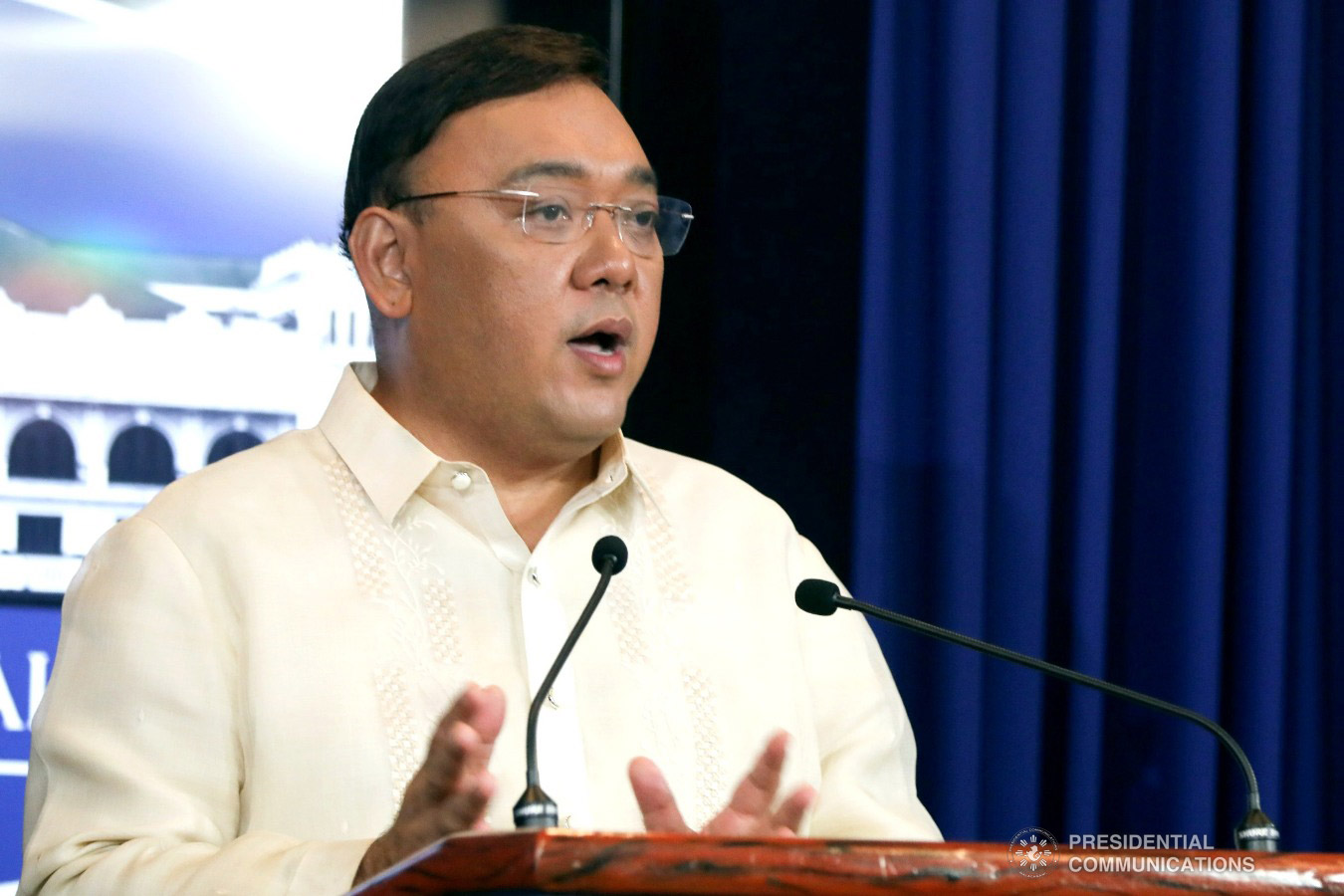Headline
Proposed Federal Charter now open to feedback: Palace

“In line with our ongoing discourse on Federalism, the government is preparing to receive feedback on the draft submitted by the Consultative Committee to Review the 1987 Constitution,” Presidential Spokesperson Harry Roque said during a Palace briefing. TOTO LOZANO/PRESIDENTIAL FILE PHOTO
MANILA — The proposed Federal Constitution drafted by the Consultative Committee (ConCom) to review the 1987 Constitution is now open for comments from the public, Malacañang said Thursday.
“In line with our ongoing discourse on Federalism, the government is preparing to receive feedback on the draft submitted by the Consultative Committee to Review the 1987 Constitution,” Presidential Spokesperson Harry Roque said during a Palace briefing.
Roque described the ConCom’s proposal as “a very good draft” but noted that both the government and ConCom are considering comments from all stakeholders to help improve the proposal.
He said President Rodrigo R. Duterte will consider people’s comments before officially transmitting the proposed Federal Constitution to Congress.
“Even if the President was fully satisfied and has fully endorsed the whole product of the Consultative Committee, of course, as part of the public discourse, we’re open to remarks and feedback from the general public,” Roque said.
“We will consider the feedback and if need be, incorporate some of them in the proposal to Congress. Of course, feedback is also important to Congress. I’m sure Congress will also have its own roadshow when it finally hears the proposed revisions of the Constitution,” he added.
Roque said feedback on the Federal Constitution can be given to the Office of the President, Office of the Presidential Spokesperson, or Presidential Communications Operations Office (PCOO) in writing, e-mail, or personally.
According to him, Duterte’s decision to open the proposed Federal Charter to public scrutiny was prompted by his Cabinet members’ apprehensions on the proposal’s economic aspects.
“To be candid about it, it started when his own members of the Cabinet expressed apprehensions over the economic aspect of the proposed draft so that’s what prompted the President to be open to suggestions and criticism on the proposed revisions as submitted by the ConCom,” Roque said.
“They have articulated their view as we will discuss this further in, I think, the Cabinet meeting. I think it is also incumbent upon them because individual members of the economic team are also committed towards Federalism to help in the process by coming up with their own suggestions on the roadmap how to get to Federalism,” he added.
Earlier, Finance Secretary Carlos Dominguez III said he found the fiscal provisions in the draft Federal Charter confusing and wanted clarification on revenue and expenditure assignments.
Socioeconomic Planning Secretary and National Economic and Development Authority (NEDA) Director General Ernesto Pernia also said the shift might be too costly and may disrupt economic momentum.
In a joint statement, at least seven business groups echoed the economic managers’ concerns about “ambiguous provisions” on the division of revenue and expenditure responsibilities between the federal government and its federated regions.
No timeline yet
Roque said that the inter-agency task force on federalism composed of the Department of the Interior and Local Government (DILG), PCOO, Commission on Higher Education (CHED), and ConCom, has yet to come up with a timeline on the federalism information and advocacy campaign.
“There’s really no timeline set by anyone. Right now, it’s very important that we have open, frank, candid, and reasoned discussion on the proposed revisions considering the importance of the Constitution as the fundamental law of the land,” he said. “We want this to be a reasoned, and an intelligent procedure.”
Meanwhile, Roque said the DILG is currently gathering its own feedback from people, who have attended some of their dissemination activities on the Federal Charter.
He also shrugged off remarks by some lawmakers that talks of Charter Change or Federalism are “dead” in Congress.
“I don’t think the Senate as an institution has said that. They have individual members, but as a body I don’t think they’ve decided Federalism is dead,” Roque said.
“That’s why we have started a period of discussions and we hope also to have this intelligent discourse with the Senate as well,” he added.

